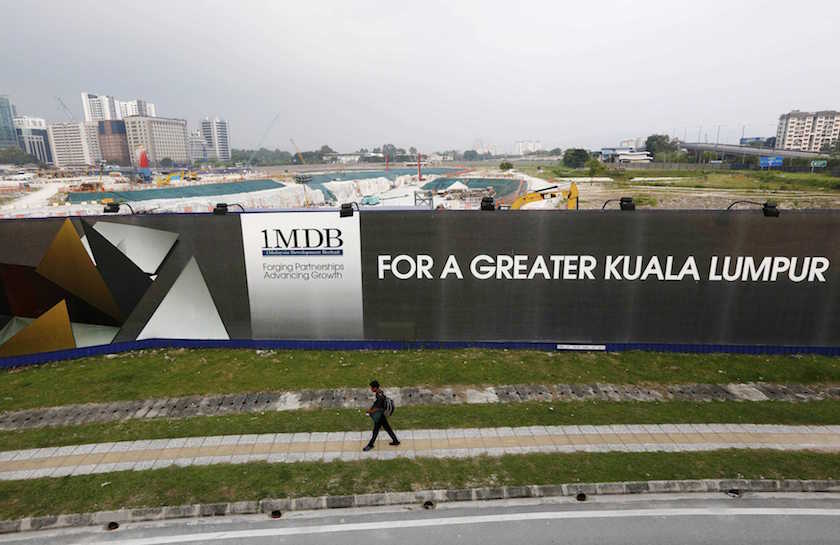KUALA LUMPUR, Sept 18 ― Controversy over 1Malaysia Development Berhad (1MDB) is likely to spike after the Wall Street Journal (WSJ) reported today a second missing money transfer amounting to nearly US$1 billion (RM4.23billion) from the state investor to a Middle Eastern sovereign fund, International Petroleum Investment Co (IPIC).
In a report on the front page of its website today, the US-based daily reported Abu Dhabi officials are questioning a further US$993 million that 1MDB said it has paid IPIC, but which WSJ’s sources say are undocumented.
Citing from a copy of a draft report by the Malaysian Auditor-General that it claimed to have sighted, WSJ pointed out that 1MDB said it made a transfer of nearly US$1 billion to a IPIC unit last November as partial payment for the options to buy a stake in some power assets.
However, the paper said neither the financial records of IPIC, nor its wholly-owned subsidiary Aabar Investments PJSC for 2014 mention the receipt of the money.
“They say only in a footnote that as of the end of 2014, 1MDB owed IPIC US$481.3 million in outstanding payments for the options.
“No substantial amount of money was received by IPIC, the people familiar with the matter said,” the WSJ report said, and added that it was unclear how the Abu Dhabi firm came up with the US$481.3 million sum, nor how it is linked to the US$993 million transfer.
The missing US$993 million is the second payment that 1MDB reported it made and IPIC said it didn’t receive, which brings total of purported missing transfers between the two sovereign firms to just about US$2.4 billion.
Apart from the Auditor-General’s draft report, WSJ said it referenced several other documents for its report today, including financial statements from 1MDB, to show that the investment fund made a separate payment of US$1.4 billion to IPIC.
“That payment was described as collateral for the loan guarantees that Abu Dhabi provided on the bonds issued by 1MDB,” WSJ said.
The paper had drawn global attention when it reported in July that nearly US$700 million had been funneled through 1MDB and government companies into the personal bank accounts of Prime Minister Datuk Seri Najib Razak, two months before the tumultuous Election 2013.
Najib has repeatedly denied any misappropriation of funds, while the Malaysian Anti-Corruption Commission stated on August that the money was a donation from the Middle East without going into further detail.
WSJ’s report last week caused another stir when it ran a news piece highlighting IPIC had not received some US$1.4 billion that 1MDB said it had paid, and cited a draft report by the Auditor General on 1MDB as well as a transcript of proceedings held by Parliament’s Public Accounts Committee (PAC) investigating the issue.
1MDB issued a statement on the same day in response to the report, expressing their concern over an alleged leak of PAC hearing information which it believed is an attempt to “prejudice the PAC investigations and deny 1MDB its right to due process as provided for by the laws of Malaysia”.
Two days ago, opposition lawmaker Tony Pua sent a letter to the United Kingdom Listing Authority (UKLA) requesting it to seek clarification from IPIC on US$1.4 billion, as the company is listed on the London Stock Exchange.
The relation between 1MDB and IPIC came about in 2012, WSJ said, after the United Arab Emirates’s sovereign fund agreed to a US$3.5 billion guarantee for bonds issued by 1MDB so the Malaysian state investor could buy some power plants, and which it was to also be given the option buy a share of those same energy assets later.
In September last year, Second Finance Minister Datuk Seri Ahmad Husni Hanadzlah announced that 1MDB would receive a US$1 billion injection from IPIC and its subsidiary Aabar Investments.
The sum was meant to help 1MDB pay off a US$975 million loan that was being recalled ahead of its due date by a consortium of international bank lenders due allegedly to the controversy surrounding the firm.
The repayment eliminated the risk of a cross default on the entirety of 1MDB’s RM42 billion in debts had the consortium declared the state-owned strategic investment firm to be delinquent.
However, the 1MDB-IPIC ended mutually late last year with 1MDB agreeing to buy back the options for an undisclosed price.
Increasing global scrutiny over 1MDB has galvanised several government agencies around the world into conducting their own independent investigations, including those from the UK, Hong Kong and Switzerland.



















